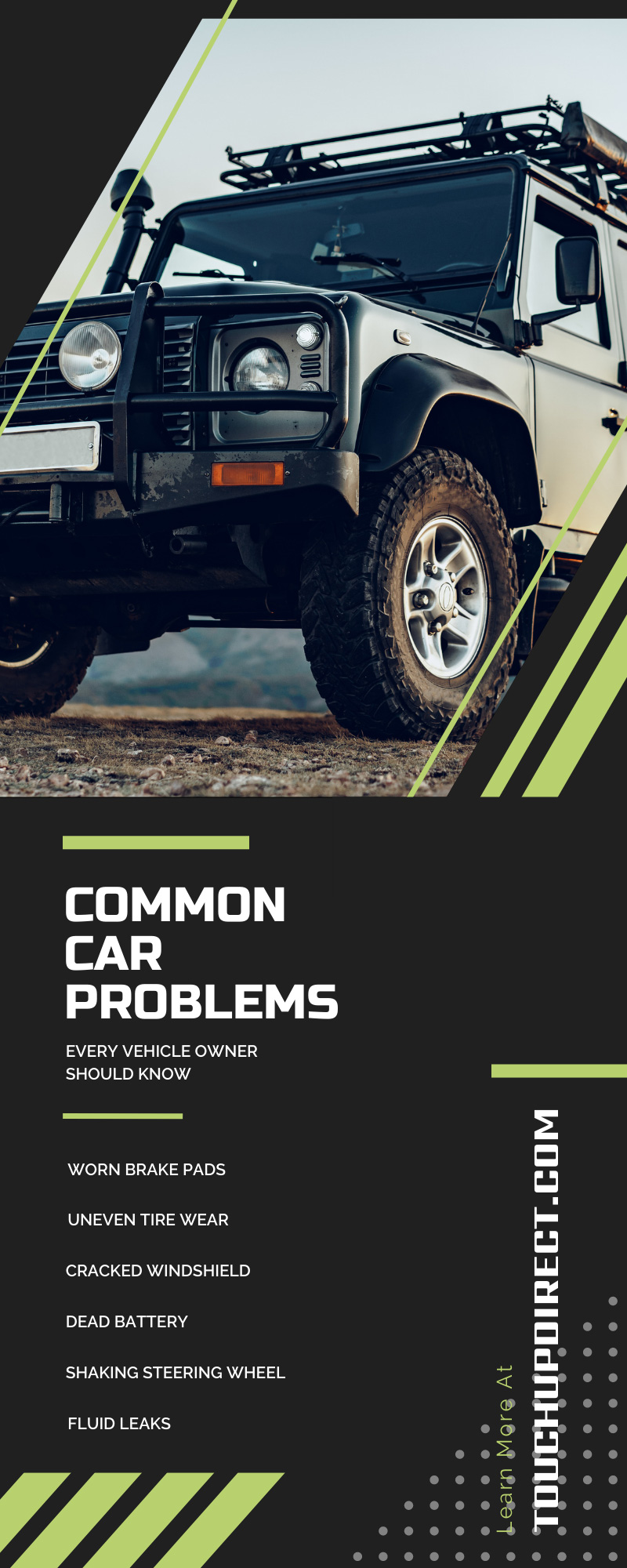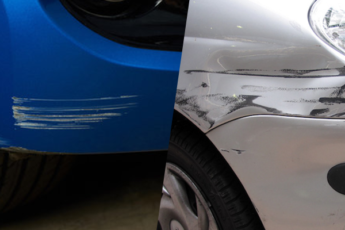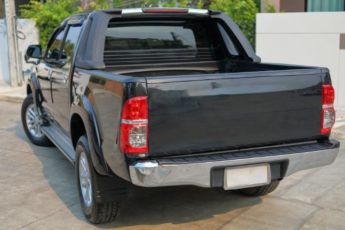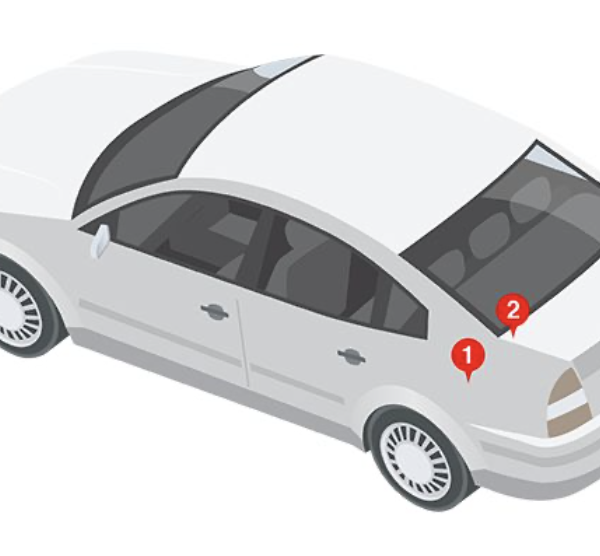Common Car Problems Every Vehicle Owner Should Know

There are plenty of options to choose from when it comes to transportation. But cars tend to remain one of the most popular options. However, there’s a lot of responsibility that comes with owning an automobile. A vehicle requires time and money to maintain its lifespan properly. Unfortunately, some problems are hard to figure out.
So here are a few common car problems every vehicle owner should know in case of emergencies. The last thing you want is to become stranded due to a popped tire. Otherwise, you must know how to identify issues along the way before the problem becomes too much to handle.
Worn Brake Pads
You use your car brakes more than you know. They not only stop your vehicle but also help start newer car models and switch gears. Over time, brake pads begin to wear down and don’t work as efficiently as they once did. So one of the most dangerous common car problems every vehicle owner should know is having overly worn-out brake pads. If you overlook your brakes, you won’t have the ability to stop as well and may end up in an accident.
It isn’t only the brake pads that wear can affect; your car rotors can also wear down. So check your vehicle manual to see what kind of brake pads and rotors you need. Then take your car to a professional mechanic who can perform the necessary replacements.
Uneven Tire Wear
Your tires are what take your vehicle to and from various locations. However, a surprising problem you may face is uneven tire wear. Over time, tire pressure and wear take effect, causing the tires to have a more challenging time getting through trickier surfaces. This can lead to unexpected flats or even dangerous blowouts during your travels.
While it can happen due to manufacturer defects, excessive tire wear early isn’t usual. Still, you should pay attention to your tire to spot uneven wear immediately if it develops. If you notice uneven treads, they could come from a misaligned suspension.
Cracked Windshield
You can go through all kinds of outdoor environments and weather conditions during your travels. Due to hailstorms and slushy snow-covered roads, your car can take a beating over time. Hail and small rocks can easily fly up and hit your windshield, causing small cracks to form. Over time, such cracks can become more significant if you don’t address them.
Driving around with a damaged windshield can be dangerous since it can shatter. Please don’t ignore the damage; visit your local auto repair shop to repair cracks and prevent them from getting worse.
Dead Battery
Whether it’s below freezing or a hot summer day, having a dead battery will prevent you from leaving the driveway. Most car batteries should last roughly three years or fifty thousand miles before calling it quits. The cause of dead batteries is the reduction of amps (electrical currents). These naturally decrease as the battery loses the ability to charge.
A dead battery can be the culprit of numerous issues, such as a damaged battery temperature sensor, charging system components, or alternator. So make sure you replace your battery every three years or so before you become the victim of an unusable car.
Warning Lights
As you drive along, you assume everything is going well and normal. However, you may sometimes see a warning light on your dashboard show up in the corner of your eye. It can either be a warning about the oil in your car, the battery, or anything else that could cause the warning light to go off. So the best thing to do is to pull over at the nearest and safest stop area and check your owner’s manual about what the light means.
The warning light detects an error code that a sensor in your car triggers. There are roughly over two-hundred different warning signs you should remain aware of, so make sure you take your vehicle to a mechanic who can resolve the issue correctly.
Shaking Steering Wheel
Having a shaking steering wheel can feel scary when it happens to you. Multiple issues can cause shakiness in the steering wheel while you drive. If the shaking occurs right after you start your vehicle, it has probably resulted from a bad wheel bearing or damaged suspension components. If the vibration happens after you start driving at high speeds, it’s likely due to a tire or wheel balancing issue.
So the best course of action is to consult a mechanic and have the vehicle inspected. Luckily, consultations remain free, and the mechanic can help identify the issue before they attempt to repair your car.
Failed Emissions Test
Over time, older cars must go through an emissions test. An emissions test is simply a check to see how much pollution your vehicle releases. The emissions tester checks the level of air pollutants that the motor vehicle emits from its exhaust pipe. If your car doesn’t pass the emissions test, you’ll have a problem.
A failed emissions test results in your car failing to become registered at the DMV, meaning you can’t keep the license plates to drive your vehicle legally. If you happen to fail an emission test, you should contact your local mechanic to check for necessary repairs.
Fluid Leaks
Whether you drive a brand-new vehicle or decade-old car, leaking car fluids can lead to deterioration and future problems. These can cause issues that range from minor to severe down the line. The most common type of leaking fluid is engine oil, which you can identify through three characteristics. For one, it will often puddle near the front of your car. It’ll also have a slightly burnt odor and a brown-black color.
If you remain unsure about what liquid is accumulating under your vehicle, you should visit your mechanic to determine the issue. Other dangerous liquids to watch out for include transmissions, antifreeze, brake fluid, and power steering fluids.
It’s every car owner’s goal to ensure their vehicle remains in good shape for years to come. If you’re looking for Jeep Wrangler paint codes, visit us at TouchUpDirect. Whether you drive an SUV, truck, or even a motorcycle, we offer touch up paint kits for any make and model you’re looking for.


 Cart
Cart
 Help Desk
Help Desk






